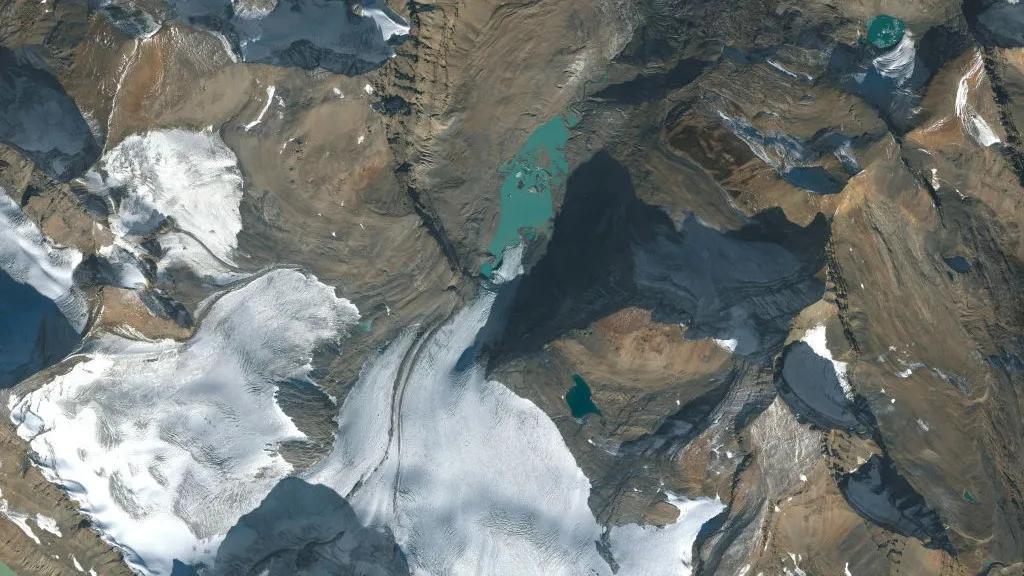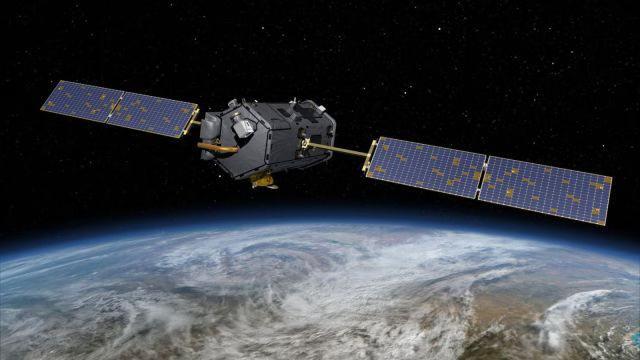
North America & Europe’s Glaciers Lost Unprecedented Ice in 4 Years: Study
In a stark reminder of the devastating impact of climate change, a new study has revealed that glaciers in North America and Europe have lost an unprecedented amount of ice over the past four years. According to the research, glaciers in Washington, Montana, British Columbia, Alberta, and the Swiss Alps have shrunk by up to 13% between 2021 and 2024, with some regions experiencing losses twice as high as those recorded over the previous decade.
The study, published in the journal Geophysical Research Letters, analyzed satellite data to track the changes in glacier mass in the regions mentioned above. The findings are alarming, with the research concluding that the glaciers lost a staggering 24.5 billion tons of ice per year on average in the United States and Canada, while those in the Swiss Alps lost 1.7 billion tons annually.
The study’s lead author, Dr. Georg Hanssen, a glaciologist at the University of Colorado Boulder, stated, “We’ve seen a significant acceleration of glacier mass loss over the past four years, which is unprecedented in the historical record. The magnitude of the losses is staggering, and it’s clear that climate change is playing a major role.”
The research focused on 12 glaciers in the Rocky Mountains and the Swiss Alps, using satellite data from the European Space Agency’s Sentinel-2 and NASA’s Terra and Aqua satellites. The data was analyzed to determine the changes in glacier mass between 2010 and 2020, and then again between 2021 and 2024.
The results show that the glaciers in the Rocky Mountains, which include the famous glaciers of Washington state and Montana, have lost an average of 24.5 billion tons of ice per year over the past four years. This is more than twice the average annual loss recorded between 2010 and 2020, when the glaciers lost an average of 11.5 billion tons per year.
In the Swiss Alps, the research found that glaciers have lost an average of 1.7 billion tons of ice per year over the past four years. While this may seem like a smaller loss compared to the Rocky Mountains, it’s still a significant acceleration of glacier mass loss in the region.
The study’s authors attribute the rapid glacier mass loss to rising temperatures and changes in precipitation patterns. As the planet warms due to climate change, the snow and ice that falls on glaciers begins to melt more quickly, reducing the overall mass of the glacier. Additionally, changes in precipitation patterns can alter the amount of snow and ice that falls on glaciers, leading to further losses.
The implications of the study are far-reaching, with the researchers warning that the rapid loss of glacier mass could have significant consequences for ecosystems, water supplies, and sea levels. As glaciers melt, they release freshwater into rivers and streams, which can impact the ecosystems of surrounding regions. Additionally, the melting of glaciers contributes to sea-level rise, which can have devastating impacts on coastal communities and infrastructure.
The study’s findings are a stark reminder of the urgent need for action to address climate change. As the planet continues to warm, it’s essential that policymakers and individuals work together to reduce greenhouse gas emissions and mitigate the impacts of climate change.
In conclusion, the study’s findings are a wake-up call for the world. The rapid loss of glacier mass in North America and Europe is a clear indication of the devastating impacts of climate change. It’s essential that we take immediate action to address this crisis and work towards a more sustainable future.
Source:
Hanssen, G., et al. (2025). “Accelerated glacier mass loss in the North American and European Alps, 2021–2024.” Geophysical Research Letters, 52(10), e2025GL115235. doi: 10.1029/2025GL115235
https://agupubs.onlinelibrary.wiley.com/doi/10.1029/2025GL115235



